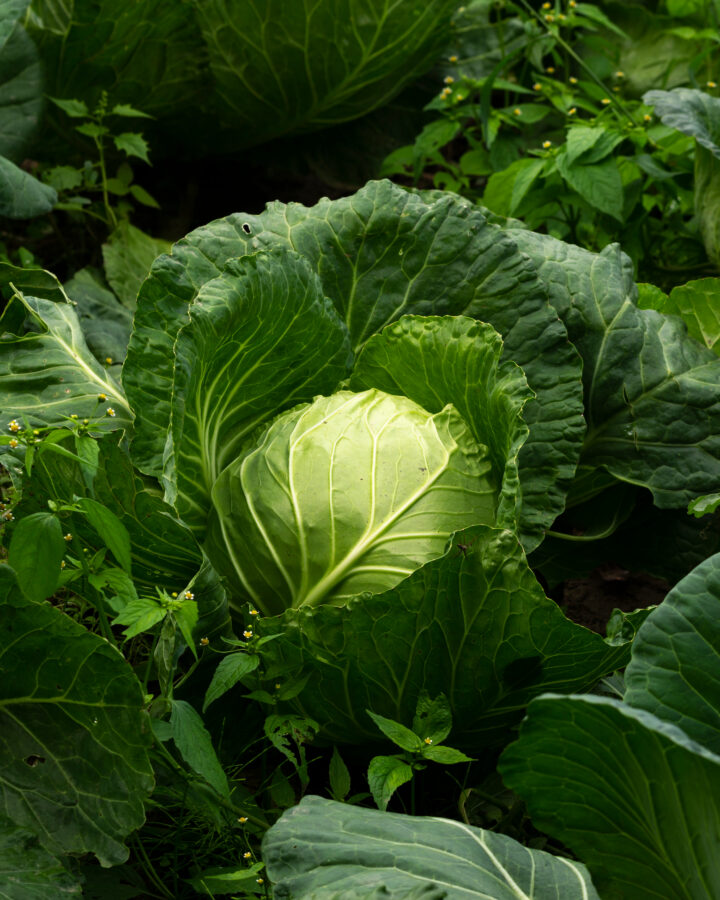14 Foods That Protect Gut Health and Slow Biological Aging

How healthy is your gut? Researchers created a short quiz
Inside you lives a vast ecosystem of trillions of microbes, tiny allies that may be shaping how well and how long you live. Known as the gut [mahy-kroh-bahy-ohm]nounThe community of microorganisms (bacteria, viruses, fungi) living in a particular environment, especially the gut.Learn More, this community influences everything from how efficiently you digest food to how resilient your immune system is, how steady your mood feels, and how quickly your body bounces back from stress. The more diverse and balanced your microbiome, the more it supports healthy aging, protects against chronic disease, and helps preserve vitality over decades. Scientists now see gut health not as a side note, but as a cornerstone of [lon-jev-i-tee]nounLiving a long life; influenced by genetics, environment, and lifestyle.Learn More, and they’re building new tools to measure exactly how your diet supports (or undermines) it.
What Is the Gut Microbiome?
The gut microbiome is the collection of trillions of bacteria, viruses, and fungi living in your digestive tract. These microbes help regulate [in-fluh-mey-shuhn]nounYour body’s response to an illness, injury or something that doesn’t belong in your body (like germs or toxic chemicals).Learn More, blood sugar, immune function, mood, and metabolism. Research increasingly links microbiome diversity to longevity and reduced risk of chronic disease.
Researchers have come up with a simple way to measure how your diet supports your gut. One science-backed framework being studied right now is the Dietary Index for Gut Microbiota (DIGM). It’s designed to help people (and researchers) better understand the connection between diet and gut microbial health.
Developed by a team from the University of South Carolina, the DIGM pulls together two decades of research linking specific foods and food groups with positive or negative impacts on gut microbiome diversity, richness, and functionality.
Here’s what you need to know.
What Is the Dietary Index for Gut Microbiota?
The DIGM is a research-based scoring system that evaluates diet quality based on how well it supports the gut microbiome.
The premise is simple: Foods that have been repeatedly shown to benefit gut microbial diversity and produce favorable metabolites like short-chain fatty acids (SCFAs) earn positive scores. Foods that have been associated with reduced microbiome diversity, inflammation, or harmful microbial changes earn negative scores.
The higher your DIGM score, the more your diet is thought to promote a thriving, diverse, and health-supportive microbiota.
Each Point on This Index Was Linked to 0.14 Years Younger Biological Age
Recent research is already connecting DIGM scores to broader health outcomes. A 2025 study published in Frontiers in Nutrition found that individuals with higher DIGM scores, meaning more gut-friendly diets, had a lower prevalence of diabetes. The researchers also found that for every 1-point increase in DIGM score, biological (or phenotypic) age decreased by 0.14 years, and body mass index (BMI) was also lower.
This suggests that building a gut-supportive diet today may actively help you age more slowly, build and sustain muscle mass, and reduce your risk of metabolic diseases like diabetes.
Take the Quiz: What’s Your Gut Health Score?
Scientists use the Dietary Index for Gut Microbiota (DI-GM) to see how food choices affect the gut, and in turn, how the gut may influence aging, weight, and diabetes risk. Here’s a simple way to try it yourself.
1) The 10 Foods That Earn Points (+1 Each):
These foods feed beneficial bacteria, boost the production of short-chain fatty acids like butyrate (which strengthens the gut lining), and reduce gut inflammation.
- Fermented foods (with live cultures): Like miso, sauerkraut, yogurt, or kefir, at least 5 times a week, deliver beneficial [proh-by-ot-iks]nounLive bacteria that promote gut and immune health.Learn More
- Chickpeas or hummus: at least 3 times a week. A rich source of fiber and resistant starch, fueling short-chain fatty acid production.
- Soy foods (tofu, edamame, tempeh): at least 3 times a week. High in prebiotics and isoflavones that support microbiota diversity.
- Whole grains (like oats, quinoa, brown rice): at least once a day, provide fermentable fibers that nourish gut bacteria.
- Cranberries (fresh, frozen, or unsweetened juice): at least 1 time a week. Rich in [pol-ee-fee-nawlz]nounPlant compounds that act as antioxidants.Learn More, cranberries may support beneficial bacteria while suppressing harmful strains.
- Avocado: at least 3 times a week. High in fiber and healthy fats, avocados have been shown to positively alter gut microbiota composition.
- Broccoli or other cruciferous veggies: at least 4 times a week. A cruciferous vegetable linked to improved gut barrier function and a healthier microbial profile.
- Coffee (black or lightly sweetened): at least 1 cup a day. Particularly black coffee, rich in polyphenols and prebiotics that feed beneficial microbes.
- Green tea: at least 1 cup a day. Contains catechins, powerful polyphenols that can support gut health and modulate inflammation.
- Fiber: Total intake hitting about 25–30+ grams per day (lots of fruits, veggies, beans, grains) Diets higher in overall fiber consistently promote microbial richness and short-chain fatty acid (SCFA) production.
2) The 4 Foods That Cost You Points (-1 Each)
These foods can starve beneficial bacteria, fuel pro-inflammatory species, and damage the intestinal barrier, setting the stage for systemic inflammation and chronic disease.
- Red meat (like steak, burgers, ribs): Especially processed or high-fat red meats, which can encourage harmful microbial shifts. Check if you’re having it more than 3 times a week
- Processed meats (like bacon, sausage, deli meat): Often high in nitrates and pro-inflammatory compounds. Check if you’re having it more than once a week
- White bread, white rice, pastries, or other refined grains: Lacking fiber and prebiotics. Check if you’re having more than one serving a day
- High-fat eating pattern: Associated with an imbalance in the gut’s microbial ecosystem and increased gut permeability. Check if less than 40% of your calories from fat (translation: lean toward olive oil, nuts, seeds, and fewer fried/cream-heavy meals)
3) What Your Score Means
Count up your checkmarks for your Gut-Friendly Food Score
- 0–3: Your gut may not be getting much support yet. Try adding 1 new fiber-rich or fermented food daily.
- 4: You’re moving in the right direction. Focus on variety.
- 5: Strong foundation. Tighten up refined/processed foods.
- 6 or more: You’re in a gut-friendly zone. Keep it diverse and plant-rich.
In a large U.S. study, people with scores of 5 or higher had a significantly lower risk of diabetes. Each extra point was linked to a younger “biological age” (how old your body seems based on labs, not just birthdays), and a healthier body weight. The more you check off, the more you may be supporting your gut, your [ri-zil-yuhns]nounThe ability to recover quickly from stress or setbacks.Learn More, and your longevity.
The Simple Rule: Feed Your Gut, Slow Your Clock
A healthy microbiome is now linked to better immune regulation, lower risk of chronic diseases like obesity and diabetes, improved cognitive function, and even healthier aging. “Dietary interventions aimed at modifying gut microbiota composition are emerging as a key strategy for improving human health,” the researchers note.
Right now, the DIGM provides a structured way to assess dietary patterns in research. Eventually, it could be adapted for practical tools that help individuals track and optimize their own gut-supportive eating habits.
The Gut Health Longevity Checklist
According to the DIGM, the recipe for a thriving microbiome is simple:
- Eat fiber-rich whole foods daily
- Include fermented foods 3–5 times per week
- Favor olive oil, nuts, and seeds
- Limit processed meats and refined grains
- Aim for a Gut-Friendly Food score of 5 or higher
In other words: Feed your gut and it will feed your health for years to come.
Read This Next
The information provided in this article is for educational and informational purposes only and is not intended as health, medical, or financial advice. Do not use this information to diagnose or treat any health condition. Always consult a qualified healthcare provider regarding any questions you may have about a medical condition or health objectives. Read our disclaimers.


